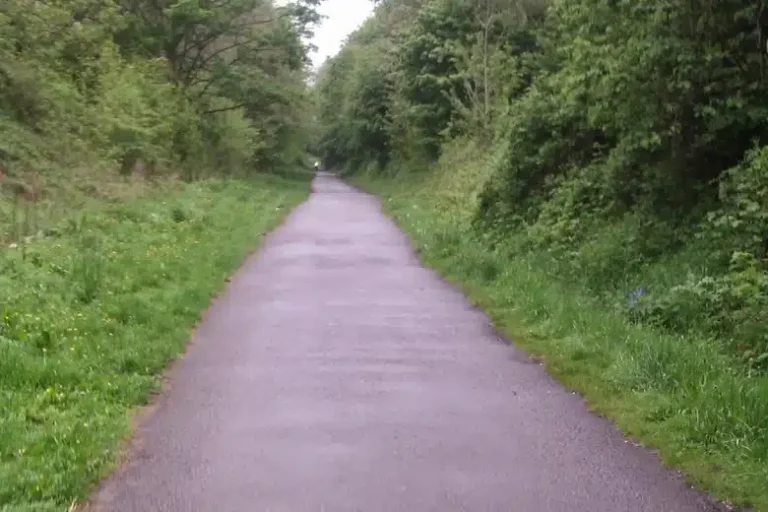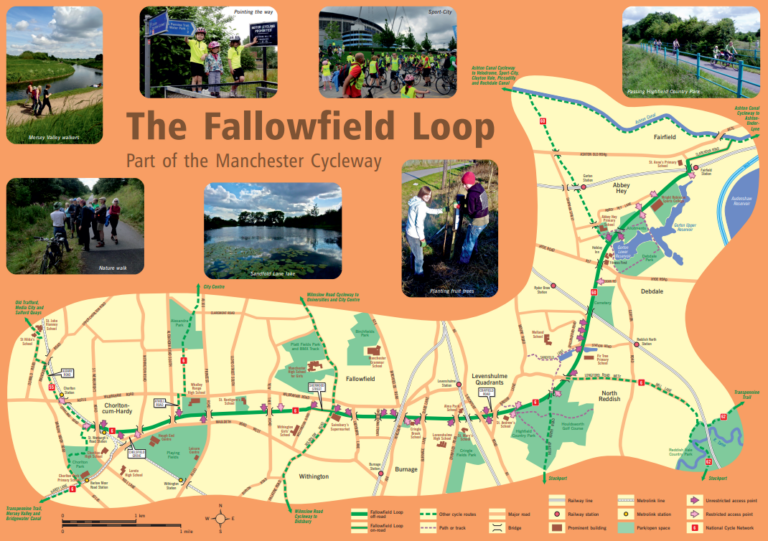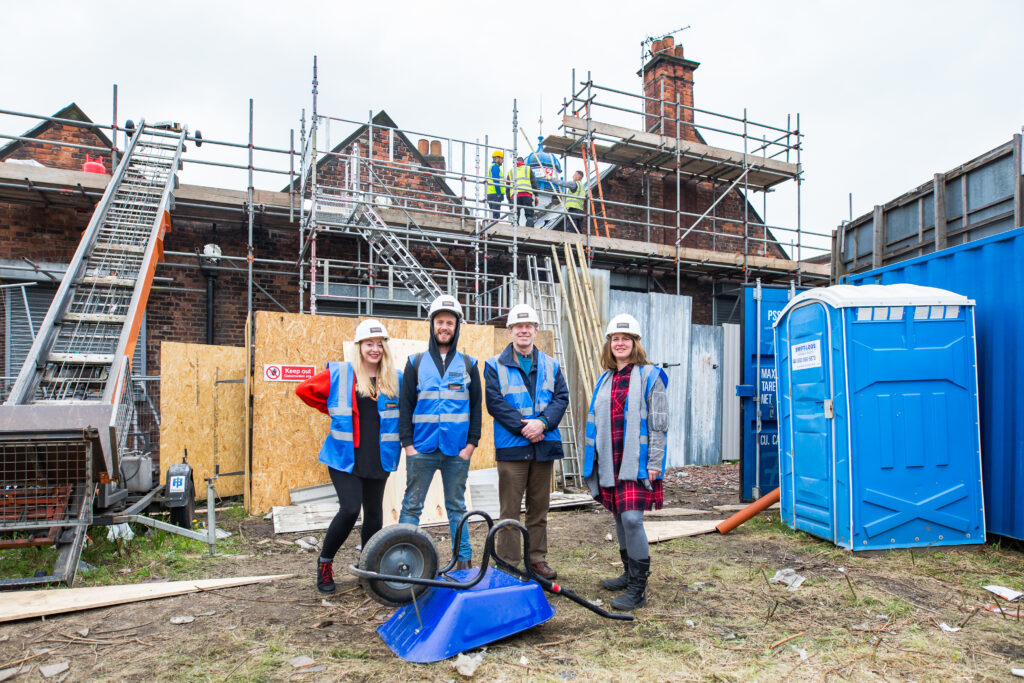OUR HISTORY
Follow our interactive timeline and the history of Levenshulme South Station from 1892 to now. From bustling train station to Station South cycle café.

Originally just called “Levenshulme”, the glorious mock Tudor building that is now Station South was opened on the 2nd of May 1892 by the Manchester, Sheffileld and Lincolnshire Railway (MSLR). The station served the MSLR 'Fallowfield Loop' line. The Loop, which many know and love as a modern-day mixed use leisure route, was a 7-mile double-track route linking Manchester South District line from near Chorlton to the mainline at Manchester, connecting the MLSR to Manchester Central Station (now Manchester Central exhibition centre).
The line passed under the station, with the building straddling the two embankments. Today thousands of cyclists, runners, walkers, scooter riders and many others pass along the same route, underneath what is now Station South.

In 1897 MSLR became the Great Central Railway (GCR). This would prove to be a turning point for the station. By now, there were 21 trains in both directions and seven on Sundays, but a decline in use was on the horizon.

By 1900, the station had a goods yard, just to the east of Broom Avenue. The goods yard boasted five large sidings, which is from where our neighbour The Sidings pub takes its name. The addition of a goods yard was an important development for the station as it opened it up to freight services as well as passenger trains. At one point, a goods service running between Liverpool and Harwich docks in Essex regularly passed through Levenshulme Station.

Electric trams were just a few years away and would see passenger numbers of the Fallowfield Loop line decline drastically as passengers had a new way to travel with quicker and more direct services into the centre of Manchester.

Express services still passed through Levenshulme Station by 1903 when electric trams came into force and even as late as 1923, by which time the line had become part of LNER, goods services were still making use of the station.

During World War II, the Government of the United Kingdom took control of the railways to support the war effort. This would prove to be another major turning point for Levenshulme station and many stations like it.

Shortly after the war, the government would introduce legislation that would set the scene for a major decline in use of stations like Levenshulme. The Transport Act of 1947 meant that British railways would be nationalised the following year.

This led to Britain’s rail network being split into six, later reduced to five, regions. This move, coupled with the government’s need to save money, formed the early groundwork for the controversial ‘Beeching cuts’, a programme of rail network reduction that focused mainly on branch lines.

The cuts, decline of steam locomotives, the growing use of diesel engines then latterly electriciation, coupled with a computerised freight network meant drastic changes for smaller branch lines and the stations that served them.

By the 1950s, passenger numbers were declining further. By 1958, passenger services calling the station were down to just three or four trains a day. In the same year, the service between Manchester Central and Guide Bridge was closed and the station was closed to passengers on the 5th of July, marking the end of an era for Levenshulme and the surrounding areas.

Although the station was closed to passengers, the station remained in use to goods trains for another seven years and the line remained open to other passenger services which passed through.








To really test the desire for a cycle cafe in the station building, the Station South team put it out to the community and began a month-long, all or nothing crowdfunding campaign based on a community led vision of what the space could be.
It was a huge success, had the support of over 1000 people and exceeded its 50K target by a whopping 16K! This helped the team to lock on further development funding and start the work of developing a robust business case to help make the vision a reality.

When the first phase of restoration of Levenshulme South Station was underway in 2018, the building was in an extremely poor condition internally and externally. In fact, the surveyors' condition report said it was about 5 years away from needing to be pulled down.
Slowly but surely the building was made watertight with the financial support of Railway Heritage Trust and investment by the then landlords Railway Path Ltd.
Emphasis was on salvaging, retaining and restoring as much of the building's heritage as possible.
.

Throughout the project, it was the community who backed the plans, got involved and lifted the momentum. This was the first year of putting ideas into action to prove that concept
